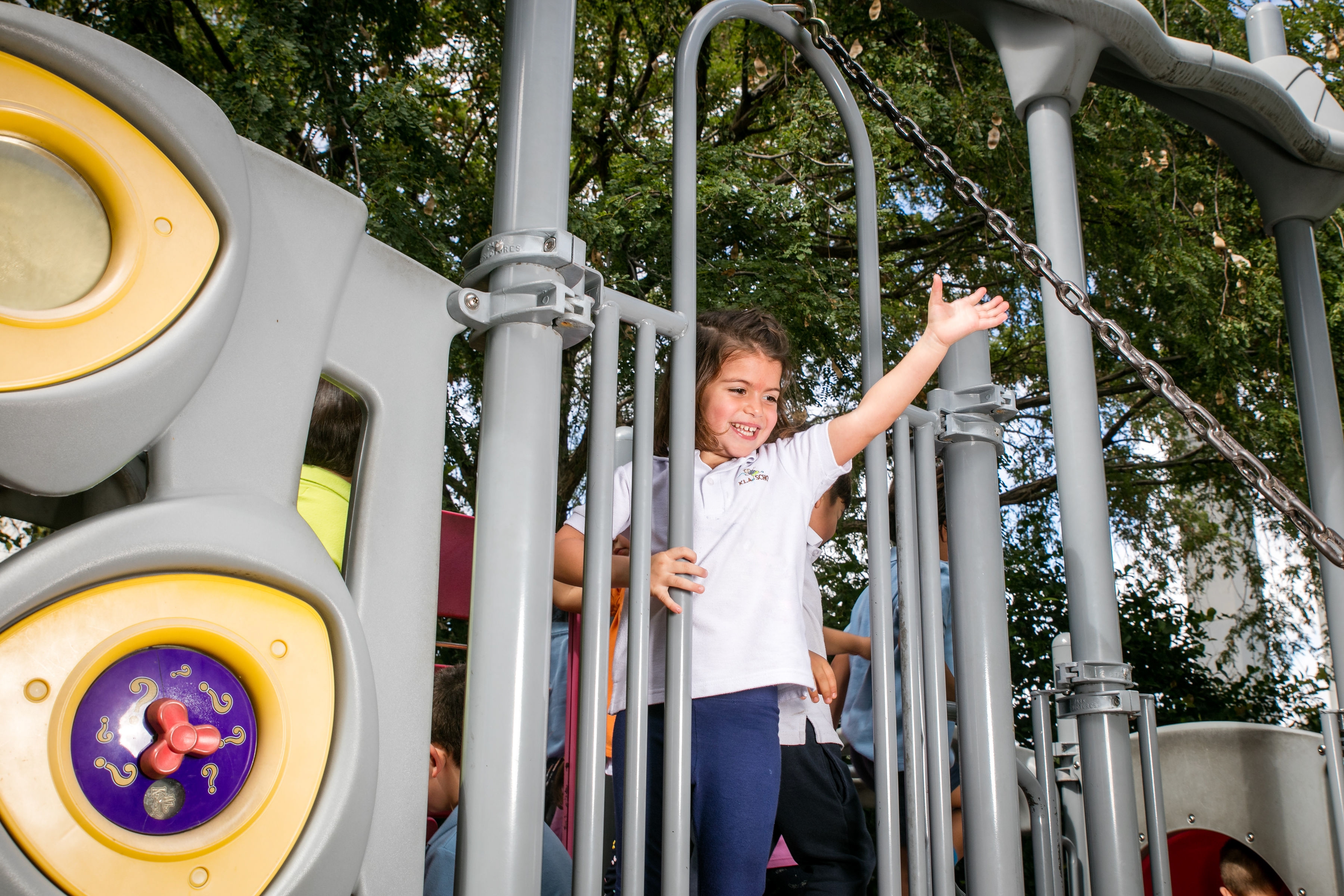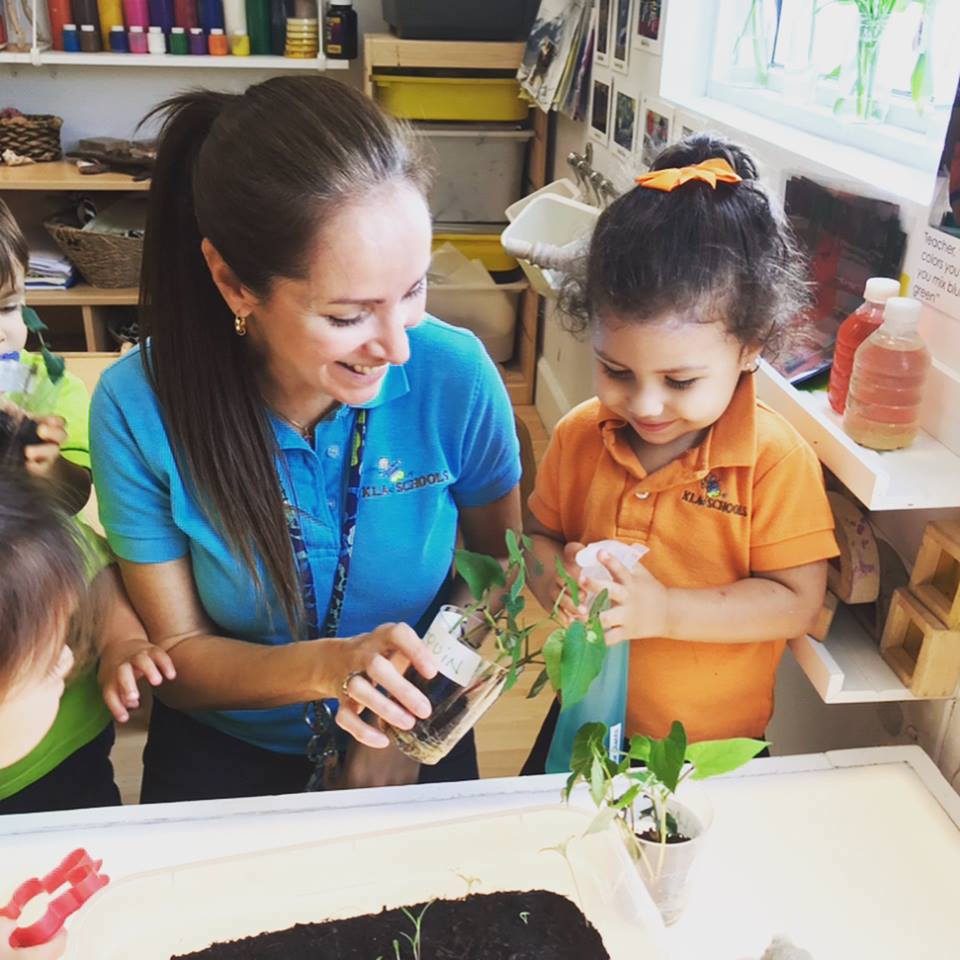Helping our children to transition into a new school year
The first day of a new school, or even the first day in a new classroom, it is typical to feel a mixture of emotions, not only for children but for parents as well. There are many emotions involved during this period of transition, where children encounter new environments, new friends, and a new daily rhythm.
These are some recommendations that will help you and your child during this process:
- Read books about the first day of school:Storybook characters are often relatable to children, so reading books about starting school can help children get a better sense of what preschool is like (if it’s their first time). This can also be helpful for returning students who may be nervous about going back after a vacation.
- Describe how a typical preschool day will be: Even if you don’t know what the preschool’s exact schedule will be, give your child clues on what will likely take place. Some typical scenarios include: explore and create with paint, clay, and/or sand, building with blocks, eating snack, playing in the playground, etc. Tell him that he will be away from you for a little while, but you will return to pick him up. Build excitement about preschool by telling him about all the new friends and teachers he’ll meet, the different experiences and materials he will use, and all the fun things he will do. Be sure to draw similarities to parts of your day as well. This will provide a feeling of comfort as your child will be able to visualize what this part of the day looks like.
- Visit the preschool with your child before his first day. It is very meaningful for children when they visit the school with their parents for the first time; parents are like a bridge between home and the school. When children feel that their parents or companions are present and calm, they feel more relaxed and have a greater disposition towards new experiences.
- Take pictures of the school, show them to him a few times before school starts. You could also make an event out of buying his school uniform or lunch box that he will use.
- Create a smooth routine for your child: Children are at their best when they have plenty of rest, eat a nutritious breakfast and don’t feel rushed. It is important to avoid introducing new things into the routine during this period, for example: moving, vacations.
- It is very important to always anticipate what is going to happen next: For example: “I am going to work and I will come back" or "I’ll go to the supermarket and I will bring you a banana". Ideally, try not to have long journeys in terms of time periods and always when you come to pick them up. Try saying: "I am here, remember that I told you that I was going to come back to get you?... I went to the supermarket, I bought bananas and then I came for you.”
- Describe or put in words what your child might be feeling: “It seems that you are very happy; you are laughing so much”, “It seems that you are sad, you’re crying because I’m leaving, but I will come to pick you up”. Be patient and let your child express their emotions, take advantage of each opportunity and express with an appropriate vocabulary the way that you feel as well.
- Remember to always say good-bye and keep the promises that you made: This way your child will start building the concept of trust and faith in people, beginning with his most significant people. Avoid sneaking out without saying good-bye or saying that you will do something that you won’t do.
- Let your child take a small transitional object to school.Maybe a note from you, a family picture, a stuffed animal or a blanky. This will make them feel comfortable, having a familiar and meaningful object with them during this transition period.
- Have open communication with your child’s teachers: Share with them different relevant aspects that are happening at home and in their routine (if your child uses a pacifier, if they suffer from any allergies, etc.), as well as any changes of routine (trips, pregnancy, moving, family members visiting, etc).
- It is important to be very flexible and understanding with your child during moments of transition; this is a great change in their lives.
- Enjoy this experience and live one day at a time: Give you and your child time to adjust to this new routine and embrace the beautiful memories and experiences that school will bring.
- Last but not least, give them lots of love and be patient at this stage, it is a big change in children's lives and they need a lot of understanding. If we have to have faith in them and provide them support you will both make it!
Raquel Roa
Assistant Director of Professional Development
Follow Raquel’s personal blog on WordPress, Twitter, and on Facebook.

